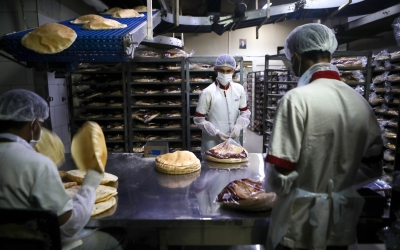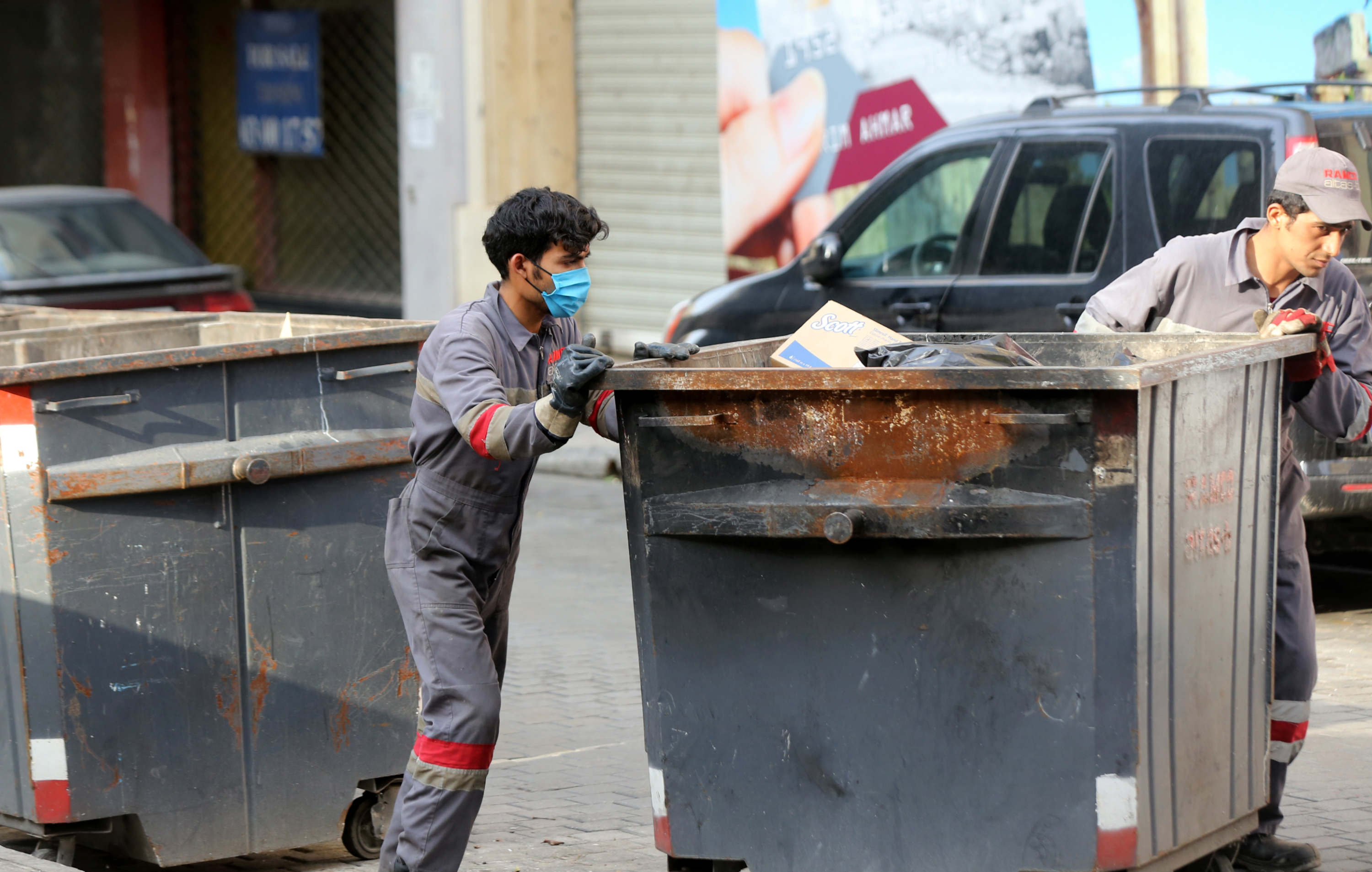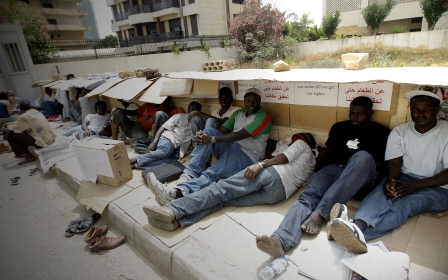Lebanon's RAMCO reaches agreement with migrant workers after strike

Lebanese waste management company RAMCO has reached a temporary agreement with hundreds of migrant workers to slightly increase their salaries after a weeks-long strike against a cut in their wages, the Bangladeshi embassy in Beirut has said.
Around 400 foreign workers, mostly from Bangladesh and India, took a stand against RAMCO more than a month ago after the company began slashing their wages and paying them in the local Lebanese currency rather than US dollars.
Since Lebanon's unprecedented financial crisis late last year, the Lebanese pound has lost a staggering 60 percent of its value.
Walid Abou Saad, RAMCO's director said the company's decision was made after the Lebanese government, its biggest customer, started paying its dues in Lebanese pounds instead of dollars.
The currency is currently trading at LL4,200 to the dollar, but RAMCO has been paying salaries according to the official exchange rate of LL1,500 Lebanese pounds, which means it now takes almost three times as many pounds to buy the same amount of dollars.
Feeling the pinch, dozens of workers held a protest outside the company's storage site in Beirut last week, blocking waste collection trucks from leaving the building.
Video of riot police violently suppressing the protest were widely shared online. Armored police, which were summoned by the company, could be seen beating the foreign workers with sticks and using tear gas to disperse the crowd.
"I used to transfer my salary to my family in Bangladesh in dollars, but now that I’m getting paid in Lebanese pound, I have to exchange it at the black market rate, which amounts to very little", one worker told Middle East Eye on condition of anonymity.
He said his previous salary of $120, now paid in pounds, was worth just $42.
Abdullah Mamun, the Charge d'affaires at the Bangladesh Embassy in Beirut, told MEE that according to Wednesday's agreement, workers will see a slight raise in their salaries until coronavirus lockdown measures are lifted.
Mamun also said that the economic crisis company forced the company to lay off 100 migrant workers, and those still with the company would be paid in Lebanese pounds. Abou Saad also confirmed the agreement to MEE.
'Insisting on their rights'
According to Legal Agenda, the company has been paying salaries in the Lebanese currency since November 2019, a month after Lebanon's economy started rapidly deteriorating.
"The workers are insisting on their rights to be paid in US dollars as stated in their contracts but would accept receiving their payments in Lebanese pounds based on the black market dollar value," the president of the General National Federation of Trade Union of Workers and Employees in Lebanon (FENASOL), Castro Abdallah, told MEE.
Abdallah said that RAMCO is using these demands as leverage to pressure the Lebanese government to resume paying the company in dollars.
He also said he believes that the company is exploiting its employees and is neglecting its duties and responsibilities towards them.
Last week, the workers circulated a joint statement online in which they accused RAMCO of human rights violations, including the abuse of a mentally ill co-worker by the company’s security personnel. Abou Saad denied any claims of torture.
Mamun meanwhile said that following a visit to the company, the embassy was not able to confirm the accusations made by the workers, and it has reached out to the Lebanese Ministry of Labor for further enquiries.
The short end of the stick
Lebanon is home to almost 400,000 migrant workers, according to Information International research centre.
Migrant workers have long suffered from harsh working conditions in the country, including abuse, marginalisation, low salaries, ranging between $120 and $400. Human rights groups and activists have described the treatment of migrant workers in Lebanon as exploitation.
Today, with the aggravating financial crisis and the plummeting local currency, employers have not been able to pay salaries in dollars, while some have altogether refrained from payment wages.
Sarah, an Ethiopian domestic worker, has been working for a Lebanese family for almost five years, for a salary of $125. But as the crisis bit, one of her employers was laid off, while the other suffered a 30 percent salary cut.
The family was no longer able to pay this amount, which is now roughly equivalent a third of what the family makes under the new exchange rate.
Speaking under a pseudonym, Sarah told MEE that after three months of not getting paid, she sought her embassy and is now awaiting repatriation, which has been complicated by coronavirus lockdown measures.
Due to the increasing inability of Lebanese households to pay domestic workers, many Ethiopian workers registered their names at the Ethiopian embassy for evacuation.
On 12 May, Ethiopia dispatched two non-commercial flights to repatriate its citizens, but the flights were delayed due to renewed extension of the lockdown.
Sara's case is no different than many other domestic workers, who, along with thousand migrant workers in different sectors, are under threat of being repatriated without receiving what they are owed.
Middle East Eye delivers independent and unrivalled coverage and analysis of the Middle East, North Africa and beyond. To learn more about republishing this content and the associated fees, please fill out this form. More about MEE can be found here.








